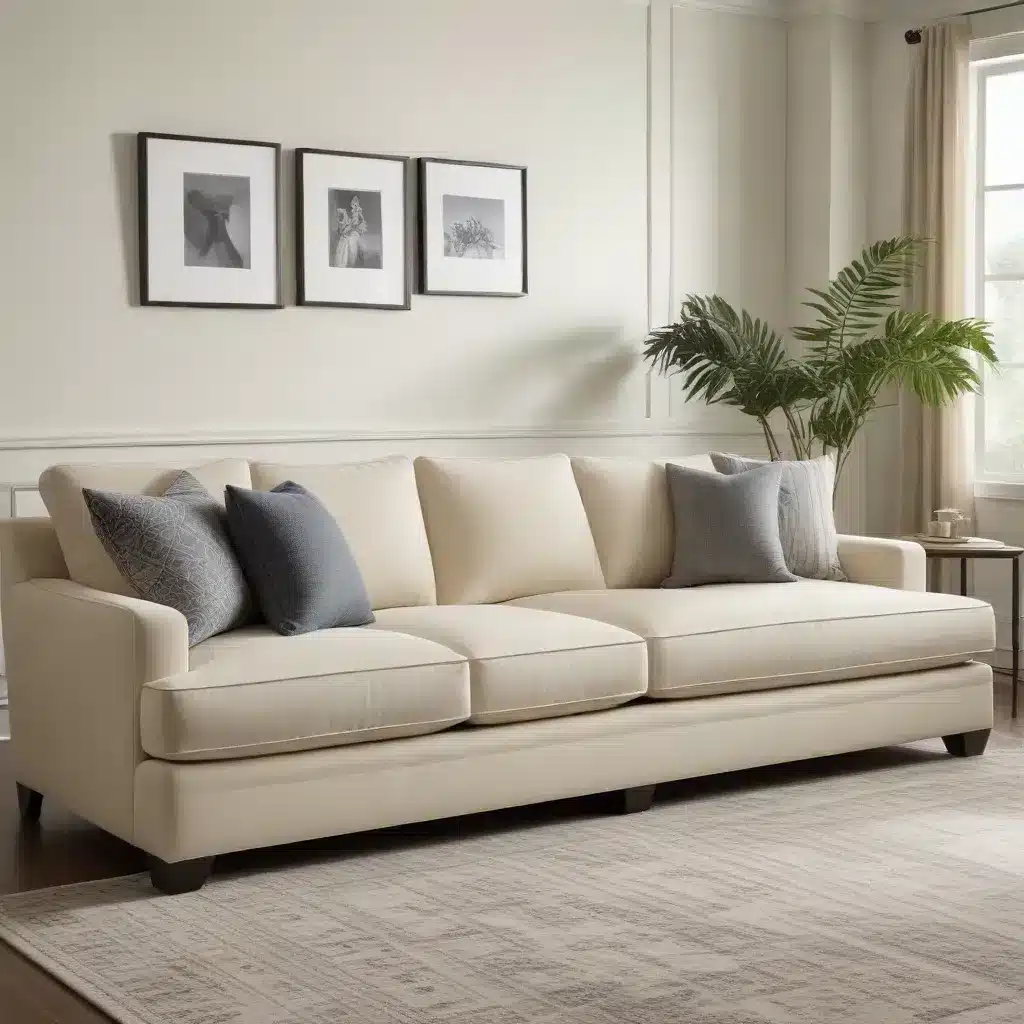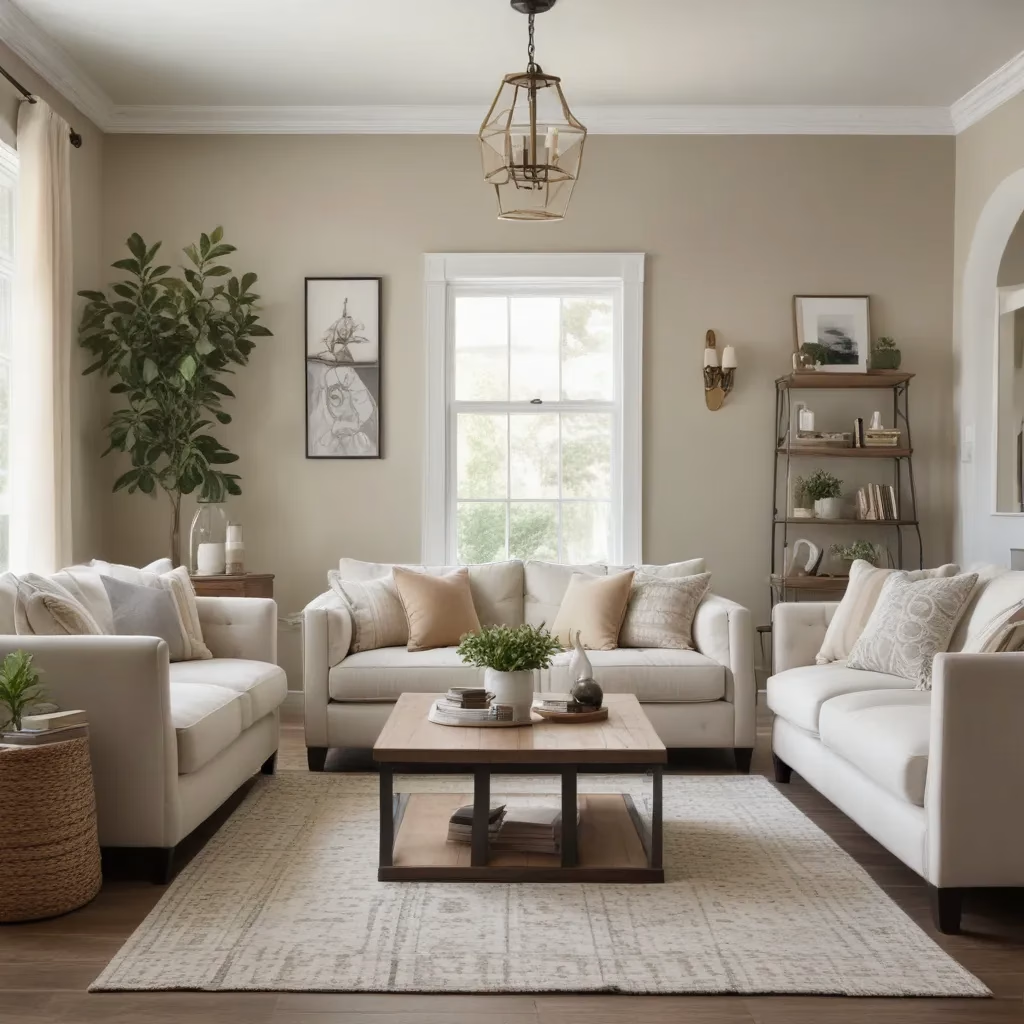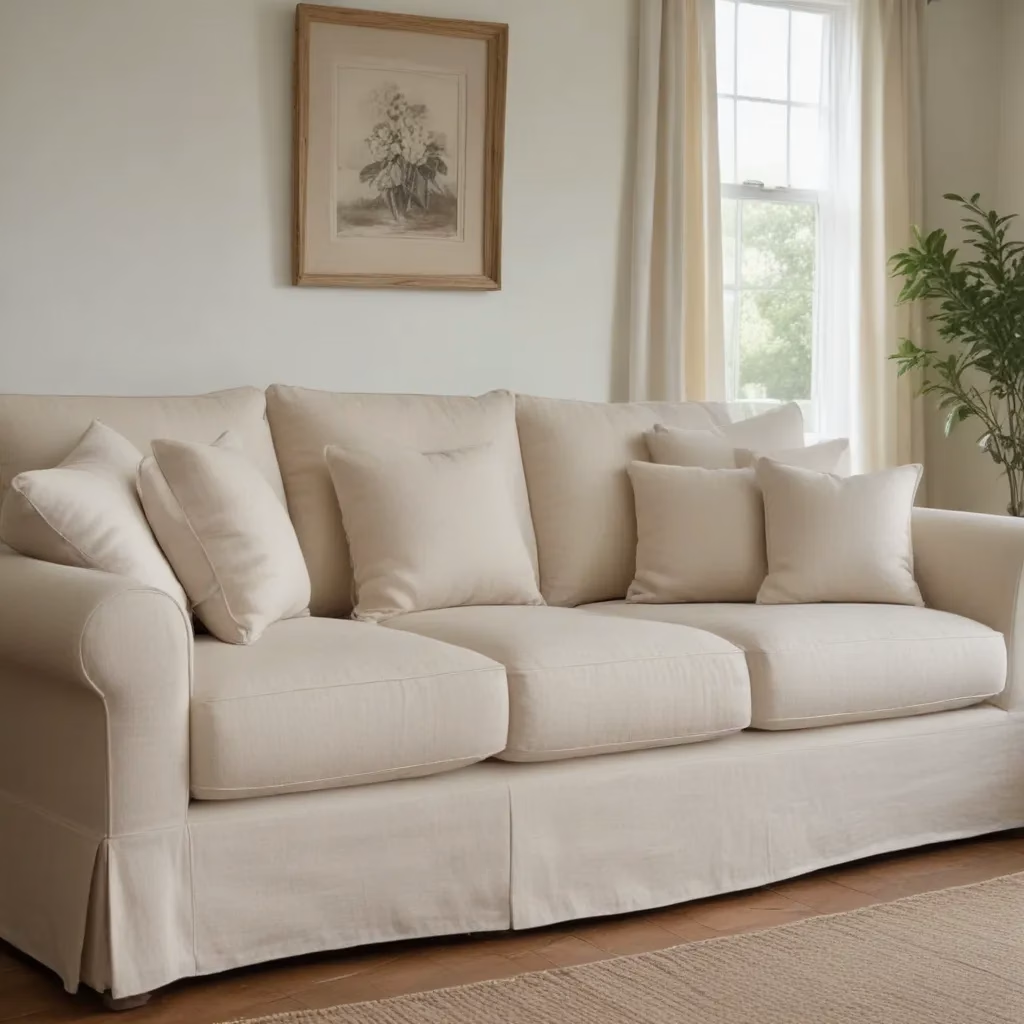
As a furniture specialist with years of experience in the industry, I’ve seen firsthand how custom sofa designs can transform a living space. There’s something truly special about a piece of furniture that’s been crafted to your exact specifications. It’s not just about aesthetics; it’s about creating a comfortable, functional space that reflects your personality and meets your unique needs.
In this article, I’ll share my insights on the world of custom sofas, from the benefits of personalized designs to the practical considerations you’ll need to keep in mind. Whether you’re a homeowner looking to revamp your living room or an interior designer seeking inspiration for your next project, you’ll find valuable information to help you make informed decisions about custom sofa designs.
The Appeal of Custom Sofas
When it comes to furnishing your home, off-the-shelf options can sometimes fall short of your expectations. That’s where custom sofas come in. These bespoke pieces offer a level of personalization and quality that’s hard to match with mass-produced furniture.
One of the main advantages of custom sofas is the ability to tailor every aspect to your liking. From the dimensions and shape to the fabric and filling, you have control over every detail. This means you can create a sofa that fits perfectly in your space, both physically and aesthetically.
I remember working with a client who had an awkwardly shaped living room. No standard sofa would fit comfortably in the space without blocking walkways or looking out of place. By opting for a custom design, we were able to create a curved sectional that hugged the room’s contours, maximizing seating while maintaining a natural flow through the space.
Factors to Consider When Designing Your Custom Sofa
When embarking on a custom sofa project, there are several key factors to keep in mind:
Size and Scale
The first step in designing your custom sofa is determining the right size and scale for your space. This involves more than just measuring the available area; you need to consider how the sofa will interact with other furniture pieces and the overall flow of the room.
I always advise my clients to use painter’s tape to outline the proposed sofa dimensions on the floor. This simple trick gives you a tangible sense of how much space the sofa will occupy and how it will affect movement through the room.
Remember, a sofa that’s too large can make a room feel cramped, while one that’s too small might look lost in a spacious area. It’s all about finding the right balance for your specific space.
Style and Aesthetics
Your custom sofa should complement your existing decor while also reflecting your personal style. Are you drawn to sleek, modern lines or do you prefer a more traditional, overstuffed look? Do you want your sofa to be a statement piece or blend seamlessly with your other furnishings?
Consider the overall design scheme of your room when making these decisions. A contemporary space might benefit from a low-profile sofa with clean lines, while a cozy, rustic interior could be enhanced by a plush, roll-arm design.
Don’t be afraid to mix and match styles to create a unique look. I once worked with a client who combined a traditional Chesterfield-style tufted back with modern, tapered legs for a fresh twist on a classic design.
Comfort and Functionality
While aesthetics are important, comfort should never be sacrificed for style. After all, your sofa is likely to be one of the most-used pieces of furniture in your home. Consider how you’ll primarily use the sofa. Will it be for casual TV watching, formal entertaining, or perhaps even occasional overnight guests?
The depth of the seat, the height of the back, and the firmness of the cushions all play a role in comfort. For example, if you’re tall, you might prefer a deeper seat and higher back for better support. If you like to curl up with a book, consider adding chaise section or opting for extra-plush cushions.
Don’t forget about practical features like removable covers for easy cleaning or built-in storage for blankets and remotes. These small details can make a big difference in your day-to-day enjoyment of your custom sofa.
Choosing the Right Materials for Your Custom Sofa
The materials you choose for your custom sofa will have a significant impact on both its appearance and longevity. Let’s break down some of the key components:
Frame Construction
A well-constructed frame is the foundation of a durable sofa. Hardwoods like oak, maple, or birch are excellent choices for their strength and stability. Avoid softer woods or particle board, which can warp or break over time.
I always recommend asking about the joinery methods used in the frame construction. Techniques like mortise-and-tenon or double-dowel joints provide superior strength compared to staples or glue alone.
Cushion Fill
The fill material used in your sofa cushions will determine how comfortable it is and how well it maintains its shape over time. Here’s a quick comparison of some common fill options:
| Fill Type | Pros | Cons |
|---|---|---|
| High-density foam | Firm support, keeps shape well | Can feel stiff, may not be as cozy |
| Down | Luxuriously soft, molds to body | Requires frequent fluffing, can be expensive |
| Polyester fiber | Affordable, hypoallergenic | May flatten quickly, less durable |
| Foam/down blend | Balance of support and softness | More expensive than foam alone |
In my experience, a combination of materials often yields the best results. For example, a foam core wrapped in down or polyester fiber can provide a perfect balance of support and softness.
Upholstery Fabric
Selecting the right upholstery fabric is crucial for both the look and longevity of your custom sofa. Consider factors like durability, ease of cleaning, and fade resistance in addition to color and texture.
For high-traffic areas or homes with children or pets, performance fabrics are a game-changer. These engineered textiles are designed to resist stains, fading, and wear while still looking and feeling great.
Natural fibers like cotton and linen offer breathability and a luxurious feel but may be less durable than synthetic options. Leather is another popular choice, known for its durability and ability to develop a beautiful patina over time.
Remember, the fabric you choose will have a significant impact on the overall look of your sofa. Don’t be afraid to request fabric samples to see how they look in your space under different lighting conditions.
The Custom Sofa Design Process
Now that we’ve covered the key considerations, let’s walk through the typical process of designing a custom sofa:
Initial Consultation
The process usually begins with a consultation where you’ll discuss your needs, preferences, and budget with a designer or furniture specialist. This is your opportunity to share inspiration images, describe your ideal sofa, and ask questions.
During this stage, it’s helpful to have measurements of your space and any existing furniture you plan to keep. The more information you can provide, the better equipped the designer will be to create a sofa that meets your needs.
Design Development
Based on your input, the designer will create a concept for your custom sofa. This may include sketches, 3D renderings, or even a small-scale model. You’ll have the opportunity to review and refine the design, making adjustments as needed.
This is the time to really fine-tune the details. Don’t be shy about asking for modifications or exploring different options. Remember, the goal is to create a sofa that’s perfect for you.
Material Selection
Once the design is finalized, you’ll select the specific materials for your sofa. This includes the frame wood, cushion fill, upholstery fabric, and any decorative elements like piping or buttons.
Take your time with this step, as these choices will significantly impact the final product. Many furniture makers offer the option to order fabric samples or even create small mock-ups of cushions to help you visualize the end result.
Production and Delivery
After all decisions are finalized, your custom sofa goes into production. The timeline can vary depending on the complexity of the design and the furniture maker’s workload, but typically ranges from 8-12 weeks.
Once your sofa is complete, it will be carefully packaged and delivered to your home. Many custom furniture makers offer white-glove delivery service, which includes unpacking, assembly, and placement of your new sofa.
Caring for Your Custom Sofa
A custom sofa is an investment, and proper care will help it look beautiful for years to come. Here are some tips to keep your sofa in top condition:
-
Regular cleaning: Vacuum your sofa weekly to remove dust and debris. For fabric upholstery, consider professional cleaning once or twice a year.
-
Protect from sunlight: Direct sunlight can fade and damage upholstery over time. Use window treatments to protect your sofa when the sun is strongest.
-
Rotate cushions: If possible, rotate and flip cushions regularly to ensure even wear.
-
Address spills immediately: Blot (don’t rub) spills as soon as they happen to prevent staining.
-
Use arm covers: If you tend to rest your arms on the sofa sides, consider using arm covers to protect these high-wear areas.
-
Avoid eating on the sofa: This can be a tough rule to enforce, but it can significantly extend the life of your upholstery.
By following these care instructions, you can help ensure that your custom sofa remains a beautiful and comfortable part of your home for many years.
The Impact of Custom Sofas on Interior Design
As an interior design element, a custom sofa can have a profound impact on a room’s overall aesthetic and functionality. Unlike off-the-shelf options, a custom piece allows you to create a focal point that perfectly complements your space.
I’ve seen custom sofas completely transform rooms, from making small spaces feel larger to unifying disparate design elements in open-plan living areas. For example, in a loft-style apartment with high ceilings, a low-profile custom sectional helped create a sense of intimacy without sacrificing the airy feel of the space.
Custom sofas also offer the opportunity to incorporate unique design features that can’t be found in mass-produced furniture. I once worked on a project where we integrated a built-in side table into the arm of a sofa, creating a seamless and functional design that was perfectly tailored to the client’s needs.
The Future of Custom Sofa Design
As technology continues to advance, we’re seeing exciting developments in the world of custom furniture design. 3D modeling and virtual reality are making it easier than ever for clients to visualize their custom pieces before they’re built.
Additionally, advancements in materials science are expanding the possibilities for sofa design. From self-cleaning fabrics to integrated smart technology, the sofas of the future promise to be more functional and user-friendly than ever before.
However, despite these technological advancements, the core principles of custom sofa design remain the same: creating a piece that perfectly fits your space, reflects your personal style, and meets your specific needs.
Conclusion
Designing a custom sofa is an exciting journey that allows you to create a truly unique piece of furniture tailored to your specific needs and preferences. From selecting the perfect dimensions to choosing luxurious upholstery fabrics, every decision you make contributes to creating a sofa that’s not just a piece of furniture, but a reflection of your personal style and a comfortable haven in your home.
Remember, the key to a successful custom sofa project is clear communication with your designer or furniture maker. Don’t be afraid to ask questions, request samples, or make changes throughout the process. After all, the goal is to create a sofa that you’ll love for years to come.
Whether you’re furnishing a cozy apartment or designing a spacious living room, a custom sofa can be the perfect solution to your seating needs. So why settle for off-the-shelf when you can have a piece that’s uniquely yours?
For more inspiration and expert advice on all things sofa-related, be sure to check out Sofa Spectacular. With a wide range of styles and customization options, they’re sure to have something that sparks your imagination for your next custom sofa project.



